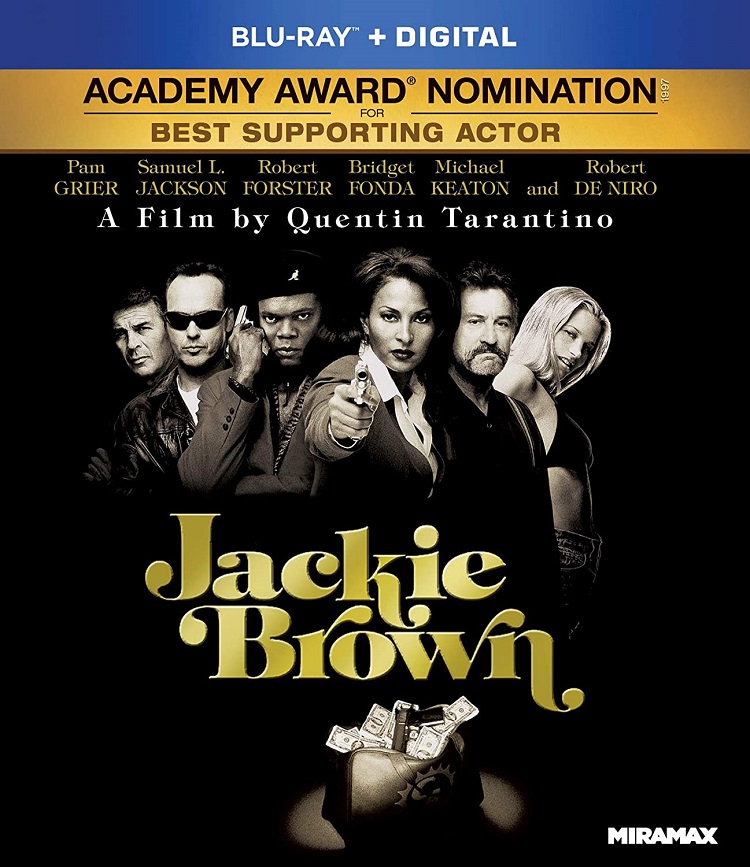
A new Quentin Tarantino movie is generally a cause for excitement, even if the filmmaker is often his own worst enemy, overdoing it on the snark or the violence or another of his numerous self-indulgences. Don’t get me wrong — I enjoy the vast majority of Tarantino’s work, and I do believe his hip, hyper and referential aesthetic has been a bracing addition to American cinema, no matter how many bad Pulp Fiction imitations he’s spawned. And once, he made a pretty much perfect movie, and its name is Jackie Brown.
Less flashy and instantly quotable than its predecessors (and really, everything else in Tarantino’s oeuvre), Jackie Brown tends to be the little-loved outlier among fans. I’ve talked to several self-professed Tarantino nuts who hadn’t even bothered to see the film, citing its likely boring qualities. But Jackie Brown isn’t some major stylistic departure — here’s a movie that has just as much swagger, ironic humor, and shout-outs to films of yesteryear as anything else Tarantino’s done. It’s just channeled differently, with a consistent maturity that’s only fitfully present in his other films.
Jackie Brown also has an unmistakable poignancy in its tale of characters on the downslope of life, maybe getting another chance at a fresh start. The casting reflects this, with onetime Blaxploitation star Pam Grier as the titular Jackie Brown and the then-stalled Robert Forster as bail bondsman Max Cherry. Tarantino’s love for his stars’ former B-pictures results in an affectionate art-imitates-art scenario, but the references here open up the characters’ inner lives, making their longing all the more tangible.
As small-time flight attendant and part-time money smuggler, Grier’s Jackie is just doing what she can to get by, tolerating her association with scummy gun runner Ordell Robbie (Samuel L. Jackson, in one of his best roles) as part of the cost of living. But when an ATF agent (Michael Keaton) catches her in the act, her tenuous existence is threatened. When Ordell uses Max’s bail bond company, he opens the door to a developing relationship between Jackie and Max that forms the heart of the film.
While Jackie Brown is based on the Elmore Leonard novel Rum Punch, and a twisty crime thriller is right in Tarantino’s wheelhouse, he actually proves himself capable of tamping down the genre elements (as fun as they can be) and telling a moving human story. That it does so without sacrificing all of the formal elements Tarantino excels at makes it an uncommon and unexpected masterpiece from the defining American filmmaker of his generation.